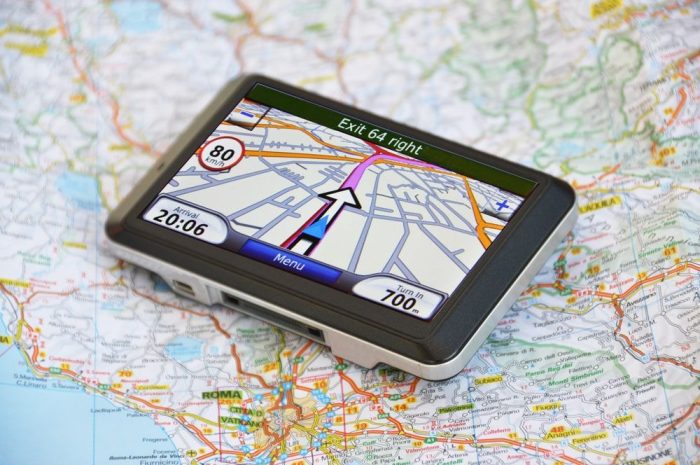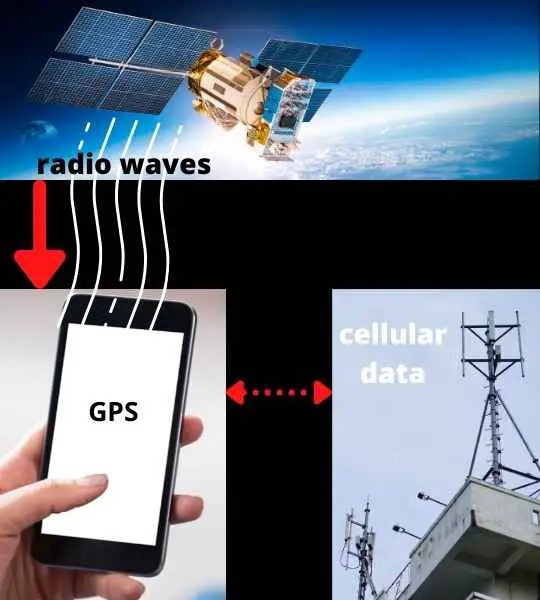Whether you want to protect yourself from someone possibly tracking your GPS signal or you want to protect yourself from harmful GPS signals, you have come to the right place.
As more people are aware of the potential dangers of non-ionizing radiation from wireless devices, they are looking for the most effective method to do this and protect them as much as possible.
Therefore, in this article, you can read absolutely everything you must know regarding the most effective material that can block GPS signals and some tips on how to do that. So, what material will block GPS signal? Let’s check it out.

What Material Will Block GPS Signal?
When talking about GPS signals and, more specifically, blocking them, most people tend to think there is some serious science behind that. But the reality is much simpler than that. So, what material will block GPS signal?
Although few materials can interfere with GPS signals, it is definitely aluminum foil when it comes to blocking them. If you are surprised by the answer, you are not alone.
Many people think blocking harmful GPS signals requires some high-technology devices, but in reality, all you need is aluminum foil.
How does the GPS signal work?
Before I continue with more details, it is important that you have basic knowledge regarding GPS signals. By being equipped with this information, you will know exactly what to do the next time you want to protect yourself from it.
Generally, GPS signals are broadcast by the Global Positioning Systems satellites to enable satellite navigation. Then, these signals are received from receivers near or on the Earth, and they can provide us with information such as velocity, location, and time.
What radiation does GPS emit?
As you probably already know, GPS emits smaller radiation doses. For the GPS to work properly, two types of frequencies are used.
The first frequency is at 1575.42 MHz, called L1, and the second frequency is at 1227.60 MHz, called L2.
So, when you consider these frequencies, you can notice that GPS signals use microwaves, a type of electromagnetic field radiation already known for its potentially harmful effects on people and animals.
Microwaves are non-ionizing electromagnetic radiation and are right next to radio waves. They are sometimes even considered a subcategory of radio waves.
The frequencies of the microwaves vary between 300 MHz and 300 GHz, with the wavelength ranging from 0.03 inches (1 millimeter) to 3.2 feet (1 meter).
By knowing the wavelength and frequencies of the GPS, you will be able to look for more specific solutions to protect yourself from the GPS signals, and you will know exactly what material will block the microwaves emitted by your GPS device.
Other materials that can block GPS signals
As I have mentioned, even though various dense materials can block GPS, such as wood, concrete, and metal, aluminum foil is the most effective and cheapest way to block the GPS signal.
On the other hand, as GPS signals travel by line of sight, they can freely pass through any material that is not dense enough, such as plastic, glass, or clouds.
How Does Aluminum Foil Block GPS Signals?
Namely, as aluminum foil is a good conductor of electricity, it is known for its ability to create a Faraday cage when used in the right conditions. Faraday cage is basically a phenomenon used to block magnetic fields.
The simplest way to describe how the Faraday shield is created is that this shield may be formed by a continuous covering of various conductive metals (such as copper, gold, silver, aluminum, steel, etc.). These same conductive metals are used in a mesh shape for forming the Faraday cage.
So, when you put aluminum foil around a cell phone or any other device with GPS properties, it will create a Faraday cage and absorb and disrupt the GPS signals from and to the device.
Aluminum foil can absorb electromagnetic waves, such as radio waves and microwaves, because of its property called attenuation effectiveness, which all metals possess.

How to block GPS signals with aluminum foil
Now that you have all the basic information regarding aluminum foil blocking GPS signals, I would like to share how to use this foil to effectively block GPS signals from your GPS or any other device.
Method 1
The first method with which you can block GPS signals with aluminum foil is a simpler and quicker one, so it is ideal for beginners.
- The first thing you need to do is take a piece of aluminum foil large enough for your GPS device and take your GPS device.
- Next, you must form the aluminum foil in your GPS device’s shape, leaving a small opening to insert the device inside.
- When the aluminum foil ‘case’ is done, put the GPS device or cell phone inside it through the opening and ensure that the aluminum foil is tightly pressed and tightly ‘hugging’ the device without any holes in it, except the small opening.
- Finally, you can test this improvised Faraday cage by trying to send or receive GPS signals from and to the device inside the aluminum foil shielding. Try experimenting or adding more aluminum foil if necessary.
Method 2
The second method is a little bit more advanced, meaning you might need some help from someone if you do not have the required technical skills.
- You first must make a small hollow sphere from aluminum foil. Like the previous method, you must ensure that this sphere is large enough to fit the GPS or cell phone device.
- Then, take a copper wire and tightly secure it to the faucet of your kitchen sink. This will provide a ground connection and prevent electromagnetic signals from affecting whatever is inside the foil shell.
- Take the copper wire’s other end and tape it to the aluminum sphere.
- Finally, take your phone or GPS device and notice the signal. Then, put it into the aluminum foil Faraday cage and see how the signal will drop to zero.
